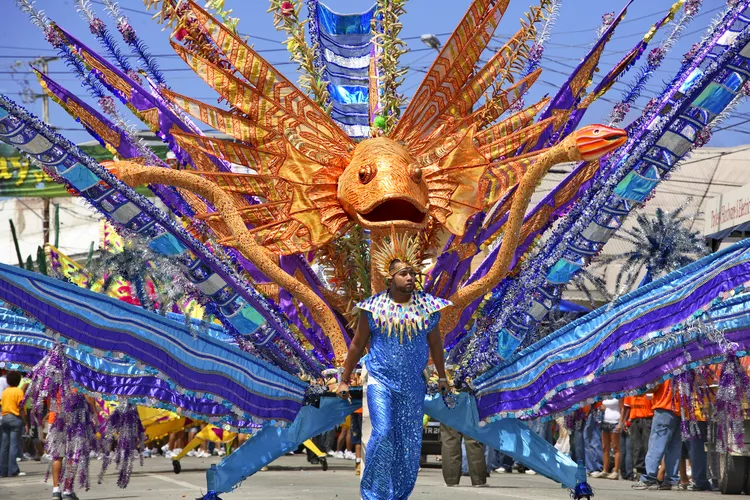Summary of Trinidad and Tobago Carnival
What is Carnival?
The annual Carnival festival in Trinidad and Tobago is one of the largest celebrations in the Caribbean, attracting thousands of visitors from around the globe to the vibrant capital city, Port of Spain. This lively event is incredibly popular with locals, Trini expatriates, and tourists alike. Therefore, it is prudent to plan ahead for accommodation to ensure a pleasant stay.
The primary celebration occurs in February or March, specifically on the Monday and Tuesday before Ash Wednesday. However, locals begin preparing for and enjoying festivities for several months before the main event, with the real party atmosphere generally starting the Friday before Lent.
Traditionally, most Carnival activities take place in February; for instance, in 2020, the dates were February 24 and 25.
Causes for Celebration: Caribbean Culture and Lent
The Trinidad and Tobago Carnival honors Western Christian and Greek Orthodox traditions with a festival of indulgence prior to the onset of Lent. More specifically, this is the period when many Christians fast for six weeks leading up to Easter Sunday. Yet, it is essential to note that Carnival is not a religious event; rather, it largely emphasizes enjoyment, socializing, and revelry for the weekend.
This event primarily serves as a celebration of Caribbean culture, showcasing everything from grand parades to entertainers adorned in intricate costumes known as “mas.” Additionally, local calypso and Soca musicians provide lively performances throughout the festival. Attendees should also anticipate various competitions, culminating in the crowning of the Calypso Monarchs (the King and Queen of Carnival) during “Dimanche Gras” on the Sunday preceding Ash Wednesday.
Schedule of Events: Competitions and Parades
The official festivities commence on the Saturday before Lent, featuring the finals for the National Panorama competition, where steel pan bands showcase their talent in diverse categories, including “Single Pan Band” and “Conventional Steel Band.”
On the evening of Sunday, known as “Dimanche Gras,” members from calypso and Soca bands participate in an extravagant costume contest vying for the title of Calypso Monarch. Each year, the audience and a panel of judges select a king and queen who represent Carnival throughout the year.
The “J’ouvert” masquerade party, which translates to “opening of the day,” occurs just before dawn on Monday and is characterized by revelers donned in costumes that humorously reflect current events. At this lively event, a King and Queen of J’ouvert are determined based on the most inventive political or social puns. Following J’ouvert, Carnival Monday features bands parading throughout the day, culminating in an evening competition highlighting the best performers of the event.
Tuesday marks the pinnacle of the celebration. Enthusiasts don full costumes, typically based on a specific theme, parading through the streets towards the Queen’s Park Savannah. Here, participants are evaluated for the best masquerade band costumes as well as individual street costumes. Furthermore, the Road March King or Queen is crowned for the artist with the most-played song during the festivities.
The vibrant celebrations on Tuesday persist until just shy of midnight, transitioning into Ash Wednesday. Although this day is not officially recognized as a holiday, many participants opt to take a break to unwind at the beach and recover from the exuberant weekend steeped in the rich culture of Trinidad and Tobago’s Carnival Festival.




